The 21st Century Is Finally Here, a Bit Behind Schedule
Social and political epochs rarely end precisely on schedules provided by calendars. The outcome of this year's election means that 2009 will, finally, mark the beginning of the 21st century.Social and political epochs rarely end precisely on schedules provided by calendars. Many historians date the end of Europe’s 19th century to 1914 and the outbreak of World War I. What we call “The Sixties” in the United States, with its ethos of reform and protest, ended with Richard Nixon’s landslide re-election in 1972 and the winding down of the Vietnam War.
In the same way, the outcome of this year’s election means that 2009 will, finally, mark the beginning of the 21st century.
It comes as we face parlous economic conditions and a slew of new threats. Nonetheless, we should view this as an opportunity to embrace the words of one of Barack Obama’s favorite presidents. “As our case is new, so we must think anew, and act anew,” Abraham Lincoln declared in 1862. “We must disenthrall ourselves, and then we shall save our country.”
For all the chatter about the world changing decisively after the terrorist attacks of Sept. 11, 2001, our reaction to the attacks was conditioned by 20th-century assumptions.
Instead of seeing the spasm of violence as representing something entirely new, President Bush’s administration, aided by thinkers allied to its approach, resolutely forced events into the interpretive boxes fashioned in previous decades.
A band of reactionary terrorists whose actions reflected the weakness of their position were raised up to world-historical status. They were “totalitarians,” which suggested they represented a threat as powerful as those embodied by Hitler and Stalin. They were “Islamofascists,” a sobriquet that credited them with battling under the banner of a coherent, modern ideology when in fact they are inspired by a ragtag jumble of ideas rooted in the medieval past.
Osama bin Laden’s commitment to reviving the power of the old Islamic “Caliphate” was taken to be as real as the danger of Soviet troops pouring across the old East German border or Hitler occupying Czechoslovakia. The new “global war on terror” was endowed with the same coherence as the old Cold War.
It was a dangerous and self-defeating set of illusions. Our battle with the terrorists is difficult precisely because it doesn’t fit into the familiar categories. It grows out of struggles within Islam over which we have little control — between Shiites and Sunnis, between modernizing and reactionary forces, between old regimes and new contenders for power.
It involves the Palestinian-Israeli conflict, which, as the battle in Gaza shows, always threatens to fly out of control. But it also involves the struggle over Kashmir, as the attacks in Mumbai demonstrated, and the fears of Iranian-Shiite power in the Persian Gulf.
None of this makes our situation easier, and it will certainly not make the danger of terrorism go away. But it does highlight the urgency of “disenthralling” ourselves from dated ideas.
So, too, does the rise of a new architecture of power in the world with the emergence especially of India and China. Fareed Zakaria says his book “The Post-American World” is not “about the decline of America,” even if its catchy title suggests otherwise, but he’s right to think anew about American influence.
What should fall is another illusion, the idea that the United States is the world’s “sole remaining superpower.” This notion weakened us because it suggested an omnipotence that no nation can possess.
By shedding this misapprehension, the United States could actually restore its influence. We could rediscover the imperative of acting in concert with others to build global institutions that strengthen our security and foster our values.
Nowhere is the need for a new understanding more obvious than in economic matters. Capitalism will not disappear, but the current crash has destroyed a series of damaging myths.
Those brilliant financiers were not so brilliant after all and certainly did not deserve the outsized rewards our system showered upon them for three decades. They did not understand that the financial instruments they created contained time bombs that would eventually rip apart the very system from which they so profited.
The market cannot operate without significant regulation, and “dreaded” government turns out to be the only institution with the capacity to repair things when market actors are routed from the field and sit, petrified, at the sidelines.
Barack Obama will have as free a hand as history ever allows to chart a new course and to define a new era. He may or may not succeed, but the country was right to seize the opportunity he offered to put the previous century and its assumptions behind us.
E.J. Dionne’s e-mail address is postchat(at)aol.com. © 2008, Washington Post Writers Group
Your support matters…Independent journalism is under threat and overshadowed by heavily funded mainstream media.
You can help level the playing field. Become a member.
Your tax-deductible contribution keeps us digging beneath the headlines to give you thought-provoking, investigative reporting and analysis that unearths what's really happening- without compromise.
Give today to support our courageous, independent journalists.
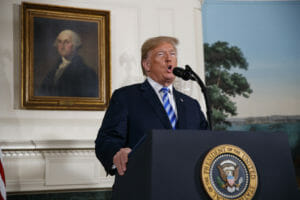
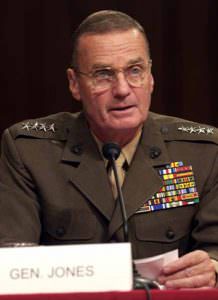
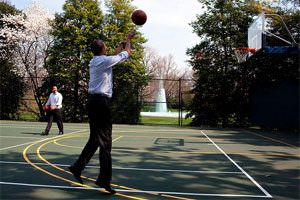
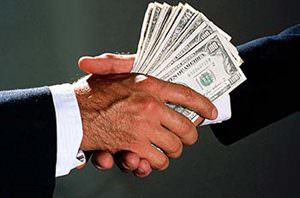
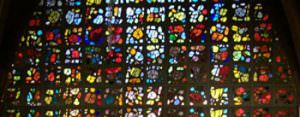
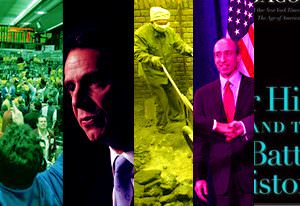
You need to be a supporter to comment.
There are currently no responses to this article.
Be the first to respond.